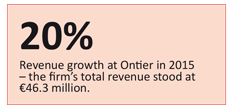Spain’s second inconclusive election could delay economic upswing
Investors were not shaken by a second general election in six months, but lawyers warn that Spain’s economy needs a settled government
Despite political uncertainty persisting in Spain following the second inconclusive general election in six months, lawyers say the electoral deadlock has had little negative impact on transactional work. However, they also warn that the lack of a stable government means that it could be some time before there are improvements to the nation’s economy and job market.
Partido Popular (PP) increased its representation in the 26 June election, winning 137 seats in Spain’s 350-seat parliament, but it fell short of winning a majority, thus failing to break the deadlock caused by last December’s election. PP received 33 per cent of the vote, the PSOE won 23 per cent, and Podemos 21 per cent.
However, the uncertainty that has shrouded Spain in the wake of the indecisive election result has not rattled investors. Despite no party having a clear majority, Adolf Rousaud, managing partner of Rousaud Costas Duran, says he does not expect the political situation to impact law firms’ revenues this year. “Despite the political instability, we have perceived greater confidence in the market and more dynamic activity in mergers and acquisitions, with increased foreign investment and risk capital in sectors such as real estate, industry and sports.”
Market deceleration
Rousaud adds: “The market has perhaps showed a certain deceleration as the elections approached, but we expect it to reactivate in the second half of the year once a new government is defined.” On the issue of whether the outcome of the June 2016 election is positive or negative for the Spanish economy, Rousaud said that investors and companies always value stability, so the result would be positive “once a government is formed”.
Cuatrecasas, Gonçalves Pereira’s Madrid managing partner Fernando Bernad says that the political environment in Spain is beginning to become clearer. He adds: “This is transmitting more certainty to the markets and foreign investment in Spain has remained stable in recent months, with the number of transactions similar to that of the second half of 2015.” Bernad says that the clear evidence of continuing investor interest is seen in the steady flow of cross-border transactions in sectors such as real estate, finance, telecoms and IT.
Bernad believes it is too soon to judge whether the elections have had any impact on Spain’s economy. “We must wait for the formation of a stable government for work to begin towards benefiting the economy and the job market, and a positive correction of macroeconomic indicators should help,” he says.
However, for law firms, the work flow remains stable and is unaffected by the political situation, according to Bernad. “Our work is focused on meeting the demands of clients, and while a positive development of the economy leads to bigger market operations, the market itself readjusts and offers new opportunities for law firms,” Bernad says.
Bernad argues that while the short-term effects of Brexit on Spain’s economy and law firms’ business could be negative, there may be some upsides to the UK’s departure from the European Union. He adds that the Spanish market – and others across Europe – could benefit in terms of the geographical relocation of businesses and commercial activities to their shores as investors seek more stable jurisdictions and a more robust financial framework with common regulations with other EU countries.












